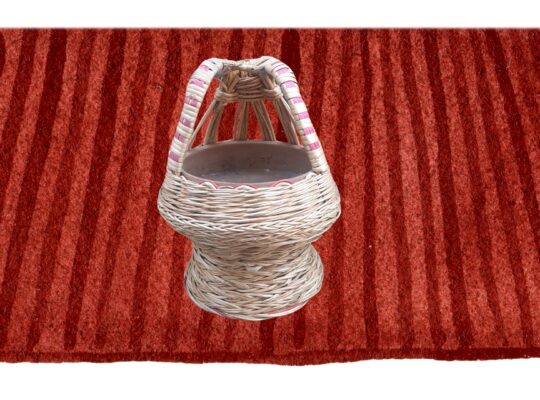The Deodar cedar (Cedrus deodara), often referred to as the “Tree of the Gods,” is one of the most revered trees found in the Kashmir Valley, particularly in and around Srinagar. Known for its majestic appearance, evergreen foliage. Deodar tree is an integral part of Kashmir’s natural and historical landscape. Let us explore the importance of the Deodar Cedar, its ecological and cultural role, and its connection to the dazzling region of Kashmir.


Introduction to Deodar Cedar
The Deodar cedar is a coniferous tree belonging to the pine family (Pinaceae). It is native to the Himalayan regions of India, Pakistan, Afghanistan, and Nepal, it thrives at altitudes ranging from 1,500 to 3,000 meters. In Kashmir, the Deodar is not just a tree but also a cultural and spiritual symbol. Its name, derived from the Sanskrit word devadāru (“timber of the gods”), reflects the recognition it holds in the region.
Physical Characteristics
- Height and Growth: Deodar cedars are towering trees that can reach heights of 40 to 60 meters, with some specimens even exceeding 70 meters. They grow straight and have a conical shape when young, becoming more open and spreading with age.
- Foliage and Bark: The needle-like leaves are soft, thin, and bluish-green, bestowing the tree its distinctive look. The bark is dark grayish-brown, thick, and fissured, adding to its charm.
- Wood: Deodar wood is highly durable, aromatic, and resistant to decay, making it a favorite for construction and carving.
Ecological Significance in Kashmir
- Biodiversity: The Deodar cedar provides a vital habitat for numerous species of birds, insects, and animals. In the dense forests of Kashmir, these trees play a crucial role in maintaining biodiversity.
- Soil Stabilization and Water Retention: The deep-rooted system of the Deodar helps stabilize soil on steep slopes and prevents erosion. It also enhances water retention in the soil, contributing to the health of watersheds that feed Kashmir’s rivers and streams.
- Air Purification: Like other conifers, Deodar cedars absorb significant amounts of carbon dioxide, releasing fresh oxygen and purifying the air. Their presence in and around Srinagar helps combat urban pollution.
Cultural and Historical Significance
- Spiritual Symbolism: The Deodar is considered sacred in many cultures. In Kashmir, it is often associated with divinity and purity. Temples and shrines in the region frequently use Deodar wood for construction, reflecting its spiritual value.
- Historical Usage: Throughout history, Deodar wood has been used in the construction of Kashmiri houses, mosques, and bridges due to its durability and resistance to rot. Examples of this craftsmanship can still be seen in old structures in Srinagar.
- Folklore and Literature: The Deodar cedar frequently features in Kashmiri folklore, poetry, and songs, symbolizing strength, vitality, and beauty.
Deodar Forests Around Srinagar
The lush forests of Deodar cedar are a sight to stare at, and their proximity to Srinagar makes them easily accessible for nature admirers.
- Dachigam National Park: Located just 22 kilometers from Srinagar, this park is home to magnificent Deodar forests. It provides a serene escape into nature and is also famous for housing the endangered Hangul deer.
- Gulmarg: Although primarily known as a ski destination, Gulmarg’s surrounding forests feature a significant population of Deodar cedars, enhancing the area’s scenic beauty.
- Sonamarg: A short drive from Srinagar, Sonamarg’s meadows are bordered by towering Deodar trees, creating a picturesque backdrop for outdoor activities.
Economic Importance
- Timber and Construction: Deodar wood is highly valued for its strength and durability. It is commonly used for constructing houses, boats, and furniture in Kashmir.
- Medicinal Uses: The essential oil derived from Deodar wood has antifungal, antibacterial, and insect-repellent properties. It is used in traditional medicine to treat skin conditions, respiratory issues, and joint pain.
- Tourism: The breathtaking beauty of Deodar forests attracts tourists from around the globe. These trees, with their towering presence and serene ambiance, add to the charm of Kashmir’s landscapes, boosting the local tourism industry.
Challenges Facing Deodar Cedars
- Deforestation: Over the years, illegal logging and unregulated deforestation have posed significant threats to Deodar forests in Kashmir. The demand for timber has led to a decline in their population.
- Climate Change: Rising temperatures and changing weather patterns are affecting the growth and health of Deodar trees. They thrive in cold climates, and the warming trend in the region could limit their natural range.
- Urbanization: The expansion of urban areas, particularly in and around Srinagar, has led to habitat loss for Deodar forests. This encroachment threatens their long-term survival.
Conservation Efforts
Recognizing the importance of Deodar cedars, several initiatives have been undertaken to protect and restore their forests:
- Afforestation Programs: Government and non-government organizations are working to plant more Deodar saplings in deforested areas to ensure the tree’s survival.
- Legal Protections: The Jammu and Kashmir Forest Department has implemented laws to prevent illegal logging and promote sustainable forestry practices.
- Community Involvement: Local communities are being educated about the ecological and economic importance of Deodar cedars, encouraging their active participation in conservation efforts.
Final Words
The Deodar cedar is not just a tree; it is a living symbol of Kashmir’s natural beauty and vitality, cultural heritage, and ecological wealth. Its towering presence in the valley and around Srinagar inspires awe and admiration, reminding us of the need to cherish and protect this magnificent species. By balancing conservation with sustainable use, we can ensure that future generations continue to enjoy the splendor of Deodar forests.








[…] Read: The Deodar Cedar: A Symbol of Vitality […]